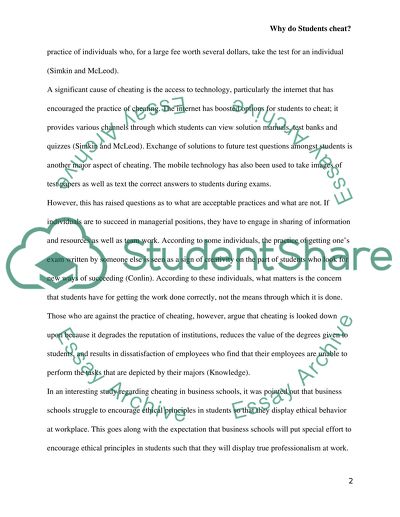Cite this document
(“Why Do Students Cheat Essay Example | Topics and Well Written Essays - 1500 words”, n.d.)
Retrieved from https://studentshare.org/english/1442604-why-do-students-cheat-
Retrieved from https://studentshare.org/english/1442604-why-do-students-cheat-
(Why Do Students Cheat Essay Example | Topics and Well Written Essays - 1500 Words)
https://studentshare.org/english/1442604-why-do-students-cheat-.
https://studentshare.org/english/1442604-why-do-students-cheat-.
“Why Do Students Cheat Essay Example | Topics and Well Written Essays - 1500 Words”, n.d. https://studentshare.org/english/1442604-why-do-students-cheat-.


